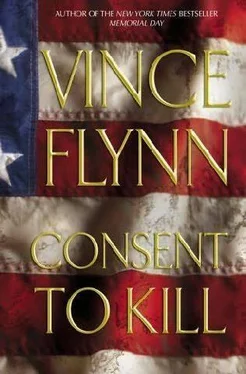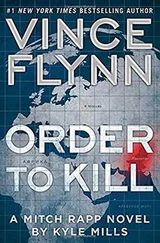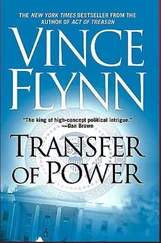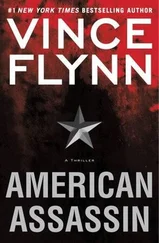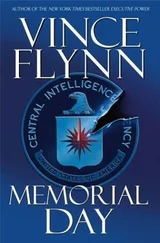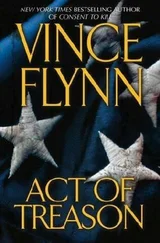In hindsight, they realized that they were fools for not having suggested that Prince Muhammad and his entourage stay at the estate in the first place. Prince Muhammad was one of the only truly pious members of the royal family, and he refused to partake in alcohol or tobacco even when traveling abroad. With Muhammad and his people sequestered at the estate, the rest of the delegation could relax and have fun without fear of being reported back to the clerics at home. The Saudi royals had a "What happens in Vegas, stays in Vegas" attitude. While in the Kingdom they at least kept up the appearance that they were following the Wahhabis' strict interpretation of Islam, but as soon as they left the country they went wild.
The remaining Saudis were left to fight over the Ritz Carlton in Georgetown and the Ritz in Foggy Bottom a mere eight blocks away. In the end the foreign minister got the Ritz in Foggy Bottom since the hotel had more rooms and his entourage was larger. They were not done arguing, though. There were still important issues to settle, such as the order in which the planes would land. It was a given that the king would land last, but the other three slots were up for grabs. Again, Prince Muhammad's people refused to negotiate. This infuriated the other two camps, but after much yelling and complaining they got nowhere. In the end the foreign minister secured the number-two spot, and the minister of commerce was forced to land first.
Security was a major issue, but the Americans were running the show where that was concerned. As the planes came in on final approach, the motorcades were readied and the military marching band stood poised to play. The king was going straight to the White House, Prince Muhammad and the foreign minister were going to the State Department, and the minister of commerce was going to the Kennedy Center where he would be hosted by the U.S. commerce secretary and important business leaders. The DC Metro Police were on hand to provide motorcycle escorts, and the Secret Service had pulled in agents from all over the East Coast to provide diplomatic protection. The king, as well as his three half brothers, had all brought their own armor-plated limousines, which had been flown over to America in advance of the visit.
Prince Muhammad had wondered more than once on the long journey just how close Abel's assassin was to getting the job done. It would be very interesting to watch the story reported from the American perspective if it happened during his visit. It would also be priceless to see the reaction on the faces of their government officials. Especially the director of the CIA. Muhammad knew the woman favored Rapp and that his death would hurt her. This is what she deserves for meddling in the affairs of Saudi Arabia, he thought.
After the attacks on the World Trade Center and Pentagon, Muhammad had learned that it had been that damnable woman who had advised the American president to press for his reassignment. Kennedy herself had visited with then Crown Prince Abdullah and provided evidence that Saudi Security Services were in some cases knowingly protecting al-Qaeda and its members. She stated that the president, along with the leaders in the House and Senate, did not feel Prince Muhammad bin Rashid was up to the job of running the Ministry of the Interior, which oversaw the security services. If he was not moved out of the position, and replaced with someone who was willing to go after al-Qaeda aggressively, Saudi-American relations would suffer greatly.
His half brother caved in to the demand, but in order to save face at home, and keep the tenuous balance between the bickering princes, he gave Muhammad the important position of minister of Islamic affairs, endowment, dawa, and guidance. In terms of sheer power, it paled in comparison to running the Ministry of the Interior, but in terms of influence, it was second to none. Oil was the blood of Saudi Arabia, but Islam was its heart. The royal family could not rule without the backing of the clerics in Mecca and Medina, and the clerics were growing increasingly leery of the king and his cozy relations with America. Muhammad knew he needed to show the religious men that he was a man of action. Someone who was willing to stand up to the Americans.
There would be great personal satisfaction in having a hand in the death of a foul nonbeliever like Rapp, but in the more strategic sense, Rapp's murder would eventually provide proof not just to the clerics, but to the other members of the royal family that Muhammad bin Rashid was a great defender of Islam, and not some pandering fool like the king. Revealing his hand in the matter would have to be handled very delicately and over a certain period of time. Prince Muhammad was fifty-nine and in good health. He could bide his time for another five years and slowly chip away at the king's support. When the time was right, the clerics would support him, that he knew for certain. They wanted Rapp dead more than he did, and they would be very grateful that a member of the House of Saud had finally picked up a sword and defended Islam. For now, though, he had to go through the motions and act as if he actually liked the Americans.
Prince Muhammad bin Rashid stepped from the plane into the late-afternoon sunlight. He was dressed in his white robes and he clutched them against the blowing wind. To the undiscerning eye it was difficult to tell him apart from his half brother, the king, especially when he was wearing sunglasses as he was at this moment. Both men stood six feet tall and had jet black mustaches and goatees. This sometimes caused a bit of confusion as it did now with the group of dignitaries and photographers who were waiting on the red carpet at the foot of the stairs. Prince Muhammad descended with a slight smile on his face as he watched one of the king's protocol officers pointing frantically at the last of the jumbo jets which was pulling to a stop just a little ways down the tarmac.
The air force general waiting to greet him held his ground. He was not about to slight the Saudi foreign minister by bolting. Enjoying the spectacle, Prince Muhammad took his time getting down the stairs. Upon meeting the base commander, he clutched the man's hand in both of his and became quite effusive in his praise for the military band. The whole time he kept one eye on the protocol officer and took great joy in seeing the man begin to tremble. Finally, the base commander broke free and with a hand on Prince Muhammad's back he sent him down the carpet toward his waiting limousine.
U.S. STATE DEPARTMENT
Kennedy stood in the corner of the John Quincy Adams State Drawing Room and nursed her glass of Chardonnay while two State Department undersecretaries tried to sell her on a new approach toward North Korea. They knew if she sided with their boss, the president would likely change course. That was not going to happen. Kennedy listened politely even though she disagreed with everything they were saying. The North Korean leader was mentally unstable, and nothing these two diplomats said would change that irrefutable medical fact. Single-party talks were a nonstarter and nothing more than an ego game by the North Korean premier. China, Japan, and South Korea had to be at the negotiating table. It was their backyard. Kennedy was tempted to tell the two Ivy Leaguers that she had been secretly counseling the president that it was time to give the Chinese an ultimatum; either rein in North Korea, or the United States would help Japan develop a nuclear weapons program. Kennedy was convinced the specter of a nuclear Japan would force China to bring North Korea to heel. There were others who understandably disagreed. China could counter by saying it would invade Taiwan and things could spin out of control rather quickly.
Telling these two doves any of this, however, would be foolish. She let them drone on and on about how it wouldn't be such a bad concession to conduct single-party talks. After all, they could always go back to six-party talks if it didn't work out. This conversation was a perfect example of why she had been reluctant to attend the reception for the Saudi foreign minister. Mixing with other departments in a social setting, especially State, often meant being trapped in these types of diametrically opposed discussions. She looked around the room for her new boss. This had been his idea. A command performance. Had Kennedy been invited by the secretary of state herself, she would have still been ambivalent about attending the diplomatic reception, but Ross had ordered her to come, and had done so in a very condescending manner. He told her, as if he was giving her an employee review, that she needed to work more on relationship building with their allies. She took all of this in stride and bit her lip, but in the back of her mind she heard Rapp's warning-Ross is an idiot.
Читать дальше
